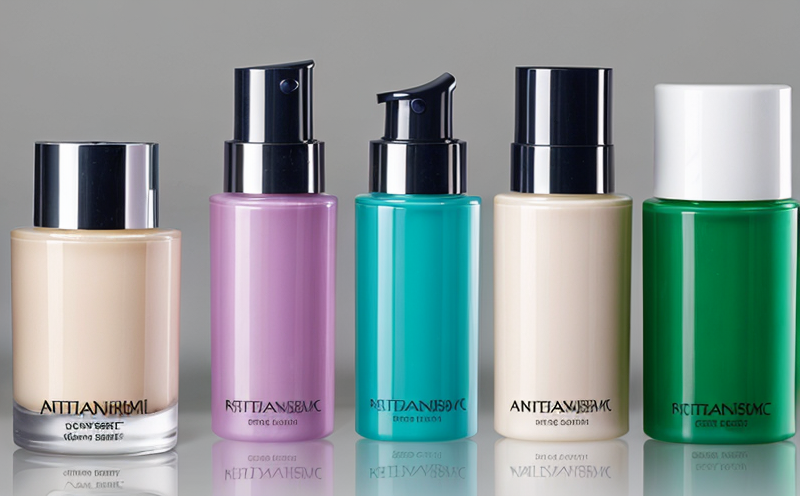Antimicrobial Effectiveness of Organic Acids in Cosmetics
The use of organic acids as antimicrobial preservatives in cosmetics is a rapidly growing trend driven by consumer demand for natural products. These acids, such as benzoic acid and its salts, sorbic acid, and their derivatives, are recognized for their broad-spectrum antimicrobial activity against fungi and yeasts without significantly affecting the cosmetic matrix. This service provides comprehensive testing to ensure that organic acids meet stringent efficacy standards while maintaining product safety.
Organic acids act as antimicrobials by disrupting the membrane integrity of microorganisms through proton donation, leading to cell death. Their effectiveness can be influenced by various factors including pH levels, concentration, and the presence of other ingredients in the formulation. To ensure consistent performance across different formulations and market requirements, our laboratory offers a range of tests tailored specifically for this application.
Our testing process involves several critical steps: initial sample preparation to remove any potential contaminants that could interfere with test results; inoculation of the samples with specified microorganisms under controlled conditions; incubation periods during which growth inhibition is observed; and finally, quantitative analysis using microbiological methods such as colony-forming units (CFUs).
For quality managers and compliance officers responsible for ensuring product safety and efficacy, this service provides valuable insights into how organic acids perform within specific cosmetic formulations. By understanding the parameters that influence their effectiveness—such as pH levels, concentration, and interaction with other ingredients—we can optimize these components to achieve optimal microbial control.
R&D engineers benefit from detailed reports on the performance of different types of organic acids in various cosmetic bases. This information helps guide formulation development towards achieving desired antimicrobial properties while minimizing adverse effects on product quality.
Procurement professionals will find this service particularly useful for validating suppliers' claims regarding the efficacy and purity of their organic acid products. With detailed analytical data from our laboratory tests, they can make informed decisions about sourcing reliable ingredients that meet both regulatory requirements and internal quality standards.
To ensure accurate and consistent results across all batches produced by manufacturers worldwide, we adhere strictly to international standards such as ISO 22716:2019 (cosmetics), ASTM D7036-18 (biocidal efficacy evaluation), and EN 14830 (antimicrobial activity of preservatives).
The importance of accurate testing cannot be overstated when it comes to ensuring consumer safety. By leveraging our expertise in this field, we help ensure that organic acids used in cosmetics are both effective against targeted microorganisms and safe for human use.
- Accurate and reliable data on antimicrobial performance
- Compliance with international standards
- Detailed reports tailored to specific product formulations
- Insights into optimizing formulation parameters for optimal efficacy
- Validation of supplier claims regarding purity and effectiveness
- Promotion of safer, more effective cosmetic products
- Support for regulatory compliance
- Enhanced consumer trust through proven efficacy and safety





